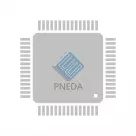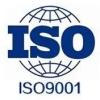End-to-side computing power is rapidly improving, and AI chip competition has entered a new stage

The AI terminal era refers to the development stage in which artificial intelligence technology is popularized and applied to terminal devices, covering various terminal devices such as smartphones and smart wearable devices to smart homes and smart cars. In this era, artificial intelligence technology is no longer limited to large servers and cloud computing, but has penetrated into all aspects of users' lives, bringing great changes to People's Daily life, work and entertainment.
In the era of AI terminals, the rapid improvement of end-side computing power has become an important trend. With the improvement of terminal equipment performance and the expansion of use requirements, higher requirements are put forward for the computing power and algorithmic reasoning ability of terminal equipment. In order to achieve more intelligent and efficient applications, terminal devices need to have strong computing power and efficient algorithm operation ability, to achieve more complex artificial intelligence scenarios, such as speech recognition, image recognition, intelligent recommendation, etc.
At the same time, the competition of AI chips in the AI terminal era has also entered a new stage. In order to meet the dual needs of terminal equipment for computing efficiency and energy consumption, major manufacturers have launched chip products specifically for AI applications, such as NPU (neural network processing unit) and TPU (tensor processing unit). These AI chips not only have breakthroughs in performance, but also have been optimized in energy efficiency ratio, hardware design, etc., to better support the operation of various artificial intelligence applications on terminal devices.
In general, the arrival of the AI terminal era means that artificial intelligence technology will be closer to people's lives and work, and terminal equipment will become more intelligent and convenient, providing users with more comprehensive and personalized services and experiences. The rapid improvement of end-side computing power and the fierce competition of AI chips have entered a new stage, injecting more impetus and possibilities into the development of the AI terminal era.
The five trends are as follows:
1. Rapid improvement of end-side computing power: With the popularity and enhancement of terminal devices such as smartphones, smart speakers, and smart cameras, the demand for end-side computing power continues to increase. In order to achieve more complex and efficient AI applications, terminal devices need to have more powerful computing power and more efficient algorithmic reasoning. Therefore, the rapid improvement of end-side computing power has become an obvious trend.
2. A new stage of AI chip competition: In the era of AI terminals, the development and competition of AI chips are becoming increasingly fierce. Traditional CPUs and GPUs have been unable to meet the dual needs of terminal devices for computing efficiency and energy consumption, and various special AI accelerator chips have emerged. Some companies have created high-performance CPU (neural network processing unit), TPU (tensor processing unit) and other chips, and some have launched low-power, high-efficiency edge computing chips. Therefore, the design and competition of AI chips have entered a new stage.
3. Algorithm optimization and model compression: In order to adapt to the limitations of end-to-side computing power, researchers continue to explore algorithm optimization and model compression methods. By means of pruning, quantization, distillation and other technical means, large deep learning models are compressed to achieve more efficient reasoning on the end device. In addition, the development of lightweight models for different application scenarios has become an important research direction.
4. Heterogeneous fusion technology is widely used: end-side devices usually have limited hardware resources, and heterogeneous fusion technology is required to make full use of these resources to complete complex AI tasks. That is, different types of processors such as CPU, GPU, DSP, NPU can be effectively integrated to achieve collaborative work. This technology can flexibly deploy computing resources according to task requirements, and improve the performance and efficiency of terminal devices.
5. Security and privacy concerns: The popularity of AI terminal devices has also brought security and privacy risks and challenges. The problems of personal privacy data being leaked and models being maliciously attacked have become increasingly prominent. In order to ensure the security and privacy of user data, developers need to fully consider security when designing terminal equipment, take corresponding data encryption, isolation and secure transmission measures, and establish a secure AI algorithm and model update mechanism.
Die Produkte, an denen Sie interessiert sein könnten
 |
2117 | UNIVERSAL QI WIRELESS CHARGING M | 6966 More on Order |
 |
3845 | 3X4 MATRIX KEYPAD | 7542 More on Order |
 |
3844 | 4X4 MATRIX KEYPAD | 7164 More on Order |
 |
3105 | PUSHBUTTON BLUE POWER SYMBOL MOM | 4932 More on Order |
 |
4187 | BLUE LED ILLUMINATED TRIANGLE PU | 7416 More on Order |
 |
1193 | SWITCH PUSHBUTTON SPST-NO GRN | 9093 More on Order |
 |
980 | MAXSONAR RANGEFINDER LV-EZ2 | 2862 More on Order |
 |
4007 | ULTRASONIC DISTANCE SENSOR - 3V | 344 More on Order |
 |
276 | AC/DC WALL MOUNT ADAPTER 5V 10W | 6426 More on Order |
 |
405 | ELECTROLUMINESCENT WIRE ORN 2.5M | 6768 More on Order |
 |
2837 | ADDRESS LED STRIP SERIAL RGBW 4M | 2052 More on Order |
 |
2506 | NEOPIXEL DIGITAL RGB LED STRIP - | 2286 More on Order |
 |
2160 | ADDRESS LED 14 SEG I2C GREEN | 4428 More on Order |
 |
2552 | ADDRESS LED STRIP SERIAL RGB 1M | 5580 More on Order |
 |
2958 | ADDRESS LED STRIP SERIAL RGB 1M | 4248 More on Order |
 |
2875 | ADDRESS LED RING 1/4 SER RGBW | 4446 More on Order |
 |
902 | ADDRESS LED MATRIX I2C RED/GRN | 7380 More on Order |
 |
1586 | ADDRESS LED RING SERIAL RGB | 8550 More on Order |
 |
3868 | FLEXIBLE SILICONE NEON-LIKE LED | 8064 More on Order |
 |
4262 | 2.9"" FLEXIBLE MONOCHROME EINK / | 6060 More on Order |
 |
782 | USB + SERIAL BACKPACK KIT | 8172 More on Order |
 |
1819 | LED MATRIX 8X8 SQUARE YELLOW | 2718 More on Order |
 |
1058 | LASER DIODE CROSS 650NM 10MM DIA | 8496 More on Order |
 |
865 | RED 7-SEGMENT CLOCK DISPLAY | 8262 More on Order |









